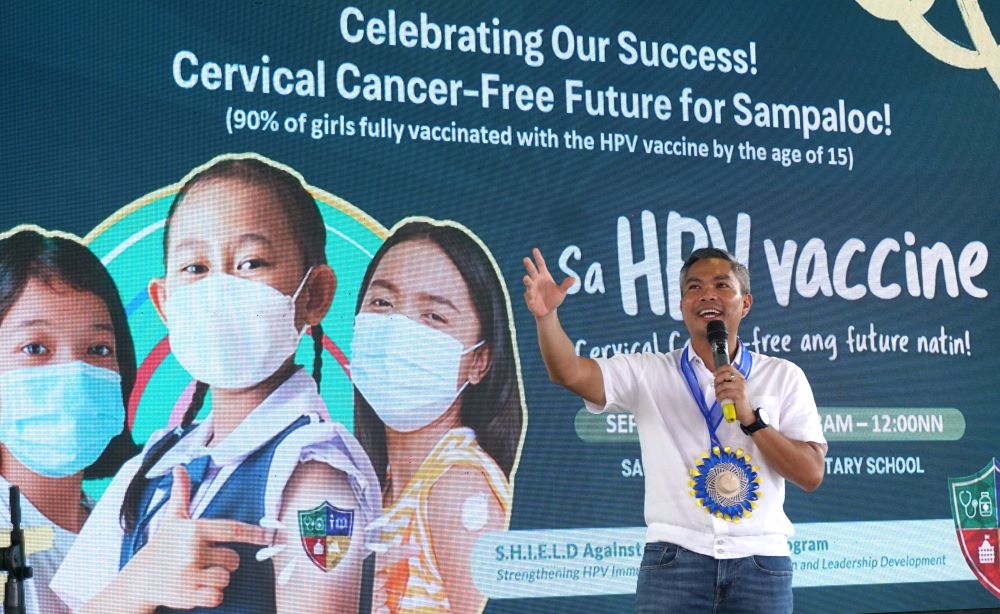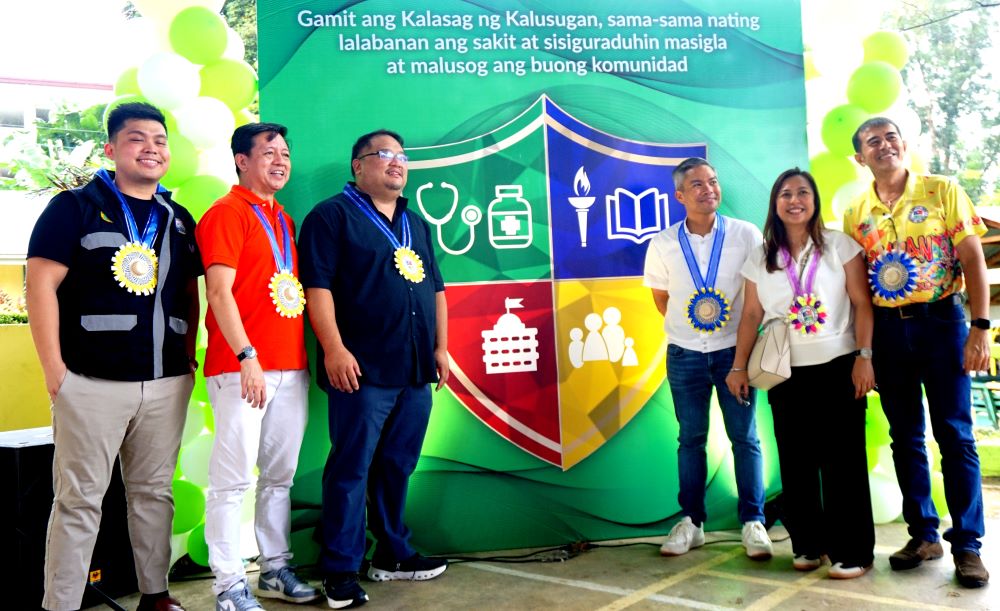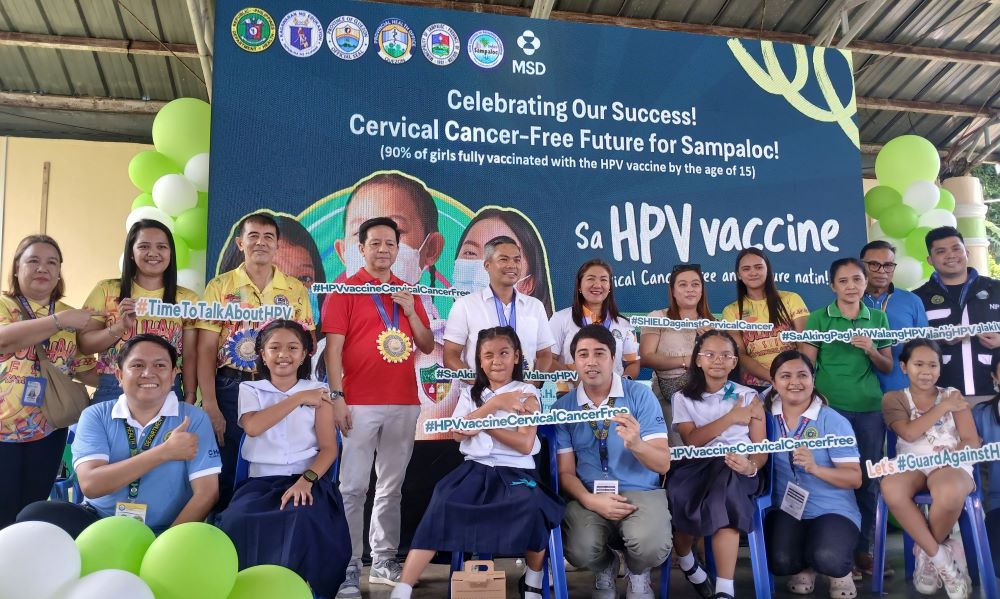HPV, the leading cause of cervical cancer, was the focus of a significant immunization drive held at the Sampaloc Elementary School Main in Quezon Province recently.
This marks the first face-to-face, school-based human papillomavirus (HPV) vaccination campaign since the COVID-19 pandemic, with over 200 students and their parents participating.
The program, called “Sa Aking Paglaki, Walang HPV,” aims to protect children from vaccine-preventable diseases like cervical cancer and supports the national launch of the government’s school-based immunization (SBI) program. It targets children aged 9 to 14, the age group most vulnerable to HPV infection.
Spearheaded by the local government units (LGUs) of Quezon, in partnership with the Department of Health (DOH) and the Department of Education (DepEd), the initiative is part of a province-wide effort to reduce HPV-related diseases through vaccination.
Why focus on HPV?
HPV is the most common cause of cervical cancer, the second most frequent cancer among Filipino women. It particularly affects women between the ages of 15 and 44, putting an estimated 37.8 million Filipinas at risk. Early prevention through vaccination is critical to lowering mortality rates and protecting the next generation.
Cervical cancer claims thousands of lives in the Philippines each year, but the introduction of HPV vaccines has provided a powerful tool in preventing it. Immunizing children early, particularly those in their pre-teen and early teen years, offers the best protection against this life-threatening disease.
Misinformation surrounding vaccines and public health measures has also magnified the challenges faced by health authorities, leading to significant repercussions on public health.
Local leaders rally behind the program
During the event, Sampaloc Mayor Noel Angelo T. Devanadera highlighted the overwhelming support from local leaders and the private sector.

Sampaloc Mayor Noel Angelo T. Devanadera
He also shared how the program originated from requests by concerned mothers, which prompted consultations with Quezon Province Governor Angelina D.L. Tan, MD. As a result, they launched the school-based immunization program to address HPV at its root, starting with the most vulnerable age group — children.
Mayor Devanadera expressed his gratitude to key partners, including pharmaceutical company MSD, which helped coordinate the program, and assured attendees that this vaccination campaign would continue despite challenges like weather disruptions.
“Once we complete the vaccination for the children, we plan to extend this program to their parents, especially the mothers, as part of our broader community health project,” Mayor Devanadera announced, emphasizing the long-term vision of the initiative.
A united effort against cervical cancer
The event also featured messages from Governor Tan and Congressman Mark Enverga, both underscoring the importance of vaccination in protecting the future of the province’s youth.
Governor Tan spoke about the need for preventive measures in schools to safeguard children from diseases like cervical cancer, while Congressman Enverga stressed the significance of prioritizing the health of women and young girls through programs like HPV vaccination.
Quezon’s school-based HPV vaccination drive is part of a larger national strategy to close healthcare gaps, especially those worsened by the COVID-19 pandemic.

Sampaloc Mayor Devanadera with representatives from the DOH, MSD, and other stakeholders
The multi-sectoral approach — uniting LGUs, healthcare professionals, educators, and private stakeholders — aims to ensure the success of the campaign.
Aligning with global goals
The “Sa Aking Paglaki, Walang HPV” campaign is aligned with the World Health Organization’s (WHO) global goal of eliminating cervical cancer as a public health issue by 2030. WHO aims to vaccinate 90% of girls by age 15, screen 70% of women by age 35 and 45, and ensure that 90% of diagnosed women receive appropriate care.
With approximately 600,000 new cases of cervical cancer diagnosed globally each year, local efforts like Quezon’s are essential to achieving these targets.
The successful turnout at Sampaloc Elementary School Main signals a strong start for the province-wide campaign but challenges remain in ensuring that a significant portion of Quezon’s school-aged population is vaccinated.
Dr. Mark Nicolas Santos, Family Health Cluster Head of DOH Region IV-A, emphasized the importance of early vaccination in reducing the chances of developing HPV-related cancers in the future. The HPV vaccination campaign will continue in various schools across Quezon Province in the coming months, with plans to expand the outreach to adults, particularly mothers.
With efforts like this, Quezon Province is making strides in the fight against cervical cancer, ensuring that future generations are protected from this preventable disease. The campaign represents a critical step forward in achieving both local and global health goals, with the hope for a healthier, cancer-free future.
To know more about the program, visit https://doh.gov.ph/uhc/health-programs/expanded-program-on-immunization/.






